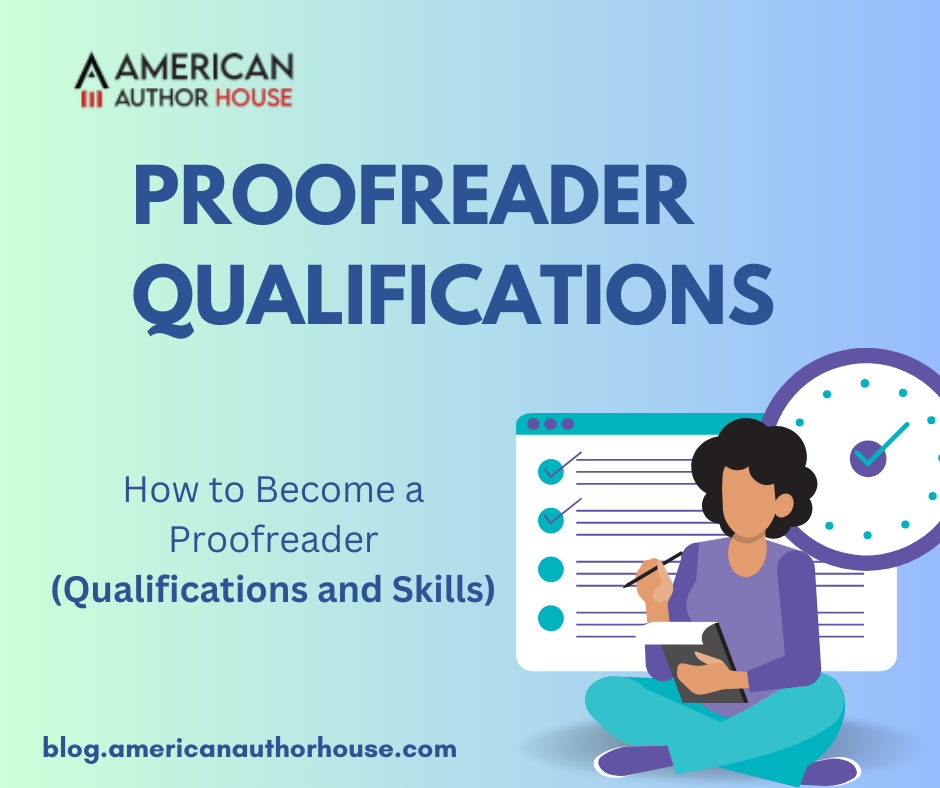
Writing
Every published article, book, or business report needs a pair of eyes to scan and perfect it. This is where a proofreader comes in.
Proofreading might seem like a simple task to many; however, in reality, it’s quite a critical step in the world of writing. If you want to dive deeper into the world of proofreading and understand its significance, check out this article on overcoming a challenge and what you learned as a result.
The proofreaders have the responsibility to ensure the content is polished, free of errors, and ready for the audience to establish the credibility of the writer and publisher. For more insights into the importance of error-free content, explore this post on writing in Spanish.
If you’re thinking about dipping your toes into the world of proofreading, you’re in the right place. In this article article, we’ll find out what it takes to become a successful proofreader, focusing on the proofreader qualifications and skills you need. To explore more about becoming a successful proofreader, visit this post on Harry Styles writing his own music
Role of a Proofreader
Proofreading is more than just spotting errors. It’s a thorough process that demands a clear understanding of language and content.
Firstly, it’s essential to distinguish between proofreading and other tasks like editing and copyediting. While editors look at the bigger picture, considering the flow, structure, and overall message of a content piece, proofreaders zoom in on the details. To learn more about the differences between editing and proofreading, visit our post on fake people quotes. They are supposed to look for grammatical errors, misspelled words, and punctuation mistakes.
The main job of a proofreader is to ensure the final content piece is error-free. They are the last line of defense before a content piece gets published or printed. Just thinking of reading a book or an article riddled with errors. It affects the reader’s trust and can even change the intended message. To understand more about the impact of errors in written content, read this post on toxic family quotes.
Hence, a proofreader’s role is to make sure that every content is the best version of itself. This means they must be conscientious and patient and have a sharp eye for the smallest of errors.
Skills for a Proofreader
When thinking about becoming a proofreader, certain skills can make your journey smoother and more successful. So, let’s have a look.
Attention to Detail
This is perhaps the most significant skill. Proofreaders must spot tiny errors that others might overlook. Even a missing comma or a misused word can make a significant difference in the content’s meaning.
Strong Command of the Language
A proofreader should have a strong understanding of grammar, punctuation, and spelling. This ensures that the content they review is not only error-free but also grammatically sound.
Patience and Persistence
Proofreading is not always a quick task. Often, it requires going through documents multiple times to ensure every mistake is caught. It’s a job that demands patience.
Technical Proficiency
Proofreaders often use tools and software to help their process. Familiarity with these tools can give you an edge in the market. You can get help from the internet to access these paid and free tools. Moreover, you can get assistance from a professional like American Author House, too.
Good Communication Skills
At times, proofreaders need to provide feedback or explain their corrections. Being able to communicate these clearly and professionally is essential.
Proofreader qualifications
Stepping into the proofreading career requires more than just a keen eye for errors. While skills are essential, having the right proofreader qualifications can set you apart in this competitive field. Here’s the breakdown of types of proofreader qualifications that can benefit you.
Formal Proofreader qualifications
-
Degree Courses
A degree in English, Journalism, or a related field can be advantageous. It provides a solid foundation in language and the mechanics of writing.
-
Professional Courses
There are specific proofreading courses and certifications available. These programs often cover the basics and the intricacies of proofreading, making you better equipped for the job.
Informal Proofreader qualifications
-
Experience
Sometimes, the best teacher is experienced. Starting with smaller tasks, like proofreading student papers or personal blogs, can provide valuable insights. Over time, this experience can be as valuable as any formal education.
-
Self-Taught Expertise
There are countless resources available online, such as books, courses, and workshops. These can be a gold mine for aspiring proofreaders looking to sharpen their skills on their own.
Building Experience and a Portfolio
Starting a career in proofreading can seem tough, especially if you’re unsure where to begin. Building experience and a portfolio is your ticket to gaining credibility and showing your skills.
-
Starting Small
Everyone has to start somewhere. Offer your proofreading services to friends or family. Local businesses or community newsletters might also appreciate a helping hand. These small projects can help you get a feel for the job and refine your skills.
-
Volunteering
Many nonprofit organizations and online platforms seek volunteers to proofread their content. This adds to your experience and gives back to the community.
-
Online Communities and Forums
Joining groups dedicated to writers, editors, and proofreaders can be beneficial. These platforms often have job boards, provide feedback, and are great for networking. Engaging with peers can offer valuable insights and open doors to more opportunities.
-
Collecting Testimonials
As you work on various projects, make a habit of asking for feedback. Positive testimonials from satisfied clients can bolster your portfolio. They serve as proof of your expertise and reliability.
Finding Proofreading Jobs and Opportunities
Once you’ve honed your skills and built a portfolio, the next step is to find opportunities to put those skills to use. Whether you’re looking for traditional employment or freelance, there are several platforms.
-
Traditional Employment vs. Freelance
Some people prefer the stability of working with a company or a publishing house. If that’s your goal, keep an eye on job boards and company websites. On the other hand, if you cherish flexibility, freelancing might be the route for you. It allows you to choose projects and set your own schedule.
-
Online Platforms
Websites like Upwork and Freelancer are platforms where businesses and individuals post job listings, including proofreading tasks. These platforms can, indeed, be the best friends for beginners looking to build experience and for seasoned proofreaders seeking consistent work.
-
Networking
Indeed, you can not underestimate the power of networking. Attend industry events, workshops, and seminars. Engaging with professionals in the field can lead to job referrals or collaborative projects. Sometimes, it’s all about being in the right place at the right time.
Essential Aspects and Detailed Insights
| Aspect | Details | Resources/Next Steps |
|---|---|---|
| Role of a Proofreader | Ensures content is error-free, focusing on grammatical errors, misspelled words, and punctuation. | Learn differences between editing and proofreading via posts on fake people quotes. |
| Skills Required | Attention to detail, strong language command, patience, technical proficiency, and good communication. | Improve skills through practice and use of tools like American Author House. |
| Formal Qualifications | Degrees in English/Journalism, professional courses, and certifications. | Consider degree courses or specialized proofreading certifications. |
| Informal Qualifications | Experience from smaller tasks and self-taught expertise through online resources. | Start with proofreading blogs or student papers, and utilize online books and courses. |
| Building Experience | Starting with small projects, volunteering, and joining online communities. | Offer services to local networks, volunteer, and engage in relevant forums. |
| Finding Opportunities | Traditional employment vs. freelance, utilizing online platforms and networking. | Monitor job boards, use platforms like Upwork, and attend industry events. |
| Continuous Learning | Staying updated with the evolving language and grammar rules. | Commit to ongoing education and stay informed about changes in writing standards. |
Conclusion
In the evolving career of writing, a successful proofreader knows that learning never stops. The rules of grammar, style guides, and even the way we use words can change over time. Hence, staying updated is not just a recommendation; it’s a necessity.
Remember, the world of proofreading is dynamic. While the foundational skills might remain the same, the nuances can change. Being committed to continuous learning ensures that you stay at the top of your game, delivering impeccable work every time.



